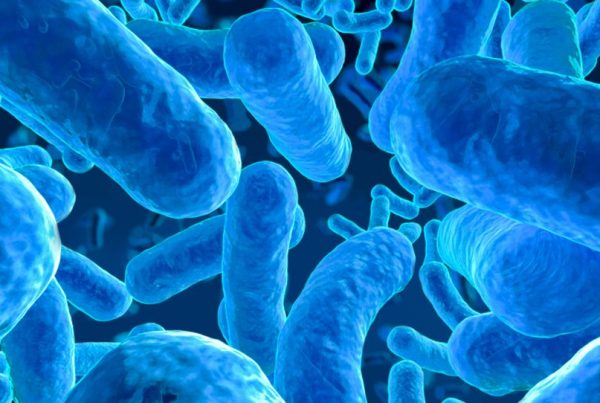By Sara Colman Carlson, RDN, CDCES
The study of normal flora that lives in the human gut is a fascinating and fairly new research area. In 2007 the Human Microbiome Project was launched to document the variety of microbes in the human body. It expanded to investigate the impact of the microbiome on our health and lifespan. New studies to explore the link between diet, gut microbes and inflammation may help with understanding additional ways to improve our health.
What is the microbiome?
The human microbiome is the assortment of bacteria, yeast and other micro-organisms that live on and in us—primarily in the gut. The number and combination varies with each individual, but we all have trillions that make up our individual microbiome.
Individual microbiomes start developing before birth, and by the age of three is almost fully developed. Family members from the same household tend to have similar microbiomes, leading us to think shared environment and diet have something to do with microbiome development. It can be modified by the type of foods consumed, environment, as well as by stress, antibiotics and illness. The microbiome has an effect on digestion, nutrient absorption and immune response. It plays a role in energy production, vitamin synthesis, drug metabolism, and maintenance of the gut cell wall.
Diet and the microbiome
The gut microbiome shifts when there is a change in diet composition. For example, eating a meat-based diet versus a plant-based diet results in changes in the microbiome mix. A lower carbohydrate diet, especially low in fiber, can decrease the diversity of gut microbes. Short chain fatty acid (SCFA) are an important source of fuel in the gut. When levels of bacteria that produce the SCFA butyrate are low, there is more inflammation and less growth of good bacteria that protects the gut barrier.
A recent study from the Netherlands University of Groningen published in the journal Gut provides more insight that links diet to gut microbiome and inflammation. The observational study of 1425 subjects, part with inflammatory bowel disease and part with normal gut function, revealed associations between dietary intake and bacterial clusters. Diets higher in animal foods and processed foods were associated with higher amounts of bacteria involved in pro-inflammatory activity.
If diets high in meat, processed foods, sugar and alcohol increase inflammation, an anti-inflammatory diet with more fruits, vegetables, nuts, legumes, fish, plant-based proteins and fermented dairy foods may do the opposite to help increase beneficial bacteria in the gut.
Studies such as this one provide insights that may help in understanding ways to prevent or treat inflammation in the gut and throughout the body by altering the gut microbiome with what we eat. We still have much to learn about the microbiome, so stay tuned for future studies.



